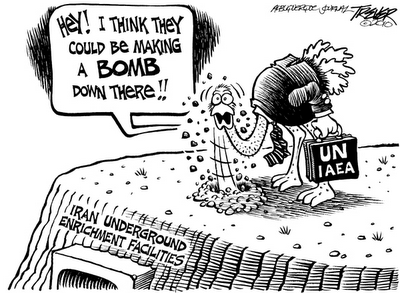The International Institute for Islamic Thought (IIIT), a creation of the Muslim Brotherhood that was once under federal investigation in connection with terrorist financing, has sponsored a recent forum at the United Nations to accelerate the use of zakat globally.
Zakat, an Islamic tax on wealth, has funded terrorist attacks including 9/11 and the Iraq insurgency. The Koran mandates that a portion of zakat be allocated to the mujahideen—the holy warriors of Islam.
Modern advocates of zakat rationalize their support for the tax as a means of poverty amelioration and social justice. However, countries that impose mandatory zakat, such as Pakistan and Sudan, suffer from the worst economic inequalities in the world. Zakat creates dependence, and after decades of Pakistani zakat, officials acknowledge that nobody who has received zakat benefits has ever stopped receiving those benefits. Even when given solely to the poor and not to terrorists, zakat is not a social ladder—it is a dungeon. As the auditor general of Malaysia has noted, more zakat equals more poverty.
For a creature of the Muslim Brotherhood to endorse such a system to United Nations is of little comfort to the world’s poor. At best, expanded reliance on zakat will create a new generation of impoverished leaches. At worst, it will fund the current and next generation of jihadists in carrying out terrorist attacks against the West and continued assaults on non-Muslims in the Middle East.
Here’s the background on IIIT from TGMBDR:
IIIT was founded in the U.S. in 1980 by important members of the Global Muslim Brotherhood who wished to promote the “Islamization of Knowledge.” IIIT was associated with the now defunct SAAR Foundation, a network of Islamic organizations located in Northern Virginia that was raided by the Federal government in 2003 in connection with the financing of terrorism. The organization appeared to withdrawn from public view following the 2003 raids, but seems to be enjoying a renaissance of late. IIIT has a network of affiliates located in Europe, Africa, the MIddle East, and Asia. Although little is known about the activities of these IIIT affiliates, recent posts have discussed plans by IIIT to construct colleges in Bosnia and Lebanon.
A report in the Washington Post from June 2007 indicated that IIIT and the SAAR Foundation were still under investigation by the Justice Department.
And here’s what they’re up to now (h/t to EWI Blog for unearthing the story from IIIT’s website):
IIIT Sponsored Forum at the United Nations on Zakat’s Potential Role in Accelerating Global Development
On November 16th, The International Institute of Islamic Thought (IIIT) sponsored a forum at the United Nations brining [sic] together international development leaders and experts to look at the importance of Zakat in advancing the global UN development agenda at a forum titled “Linking Muslim Giving to the MDGs”. The forum was co-hosted at the United Nations by the Organization of Islamic Cooperation (OIC), The World Congress of Muslim Philanthropists, and the UN Millennium Campaign.
“While some countries have made impressive gains in achieving Millennium Development Goals (MDGs), others are falling behind. The Muslim world is no exception. Faith emphasizes building communities, sharing wealth and upholding the rights of the poor and marginalized. Faith-based giving such as Zakat which amounts to billions of dollars needs to be spent in more strategic and effective ways to accelerate development in OIC member countries” stated Ambassador Ufuk Gokcen, the permanent observer of OIC at the United Nations, in his address.
Speakers from UNDP, International Institute of Islamic Thought, Islamic Relief USA, and Kimse Yok Mu shed light on the role of faith based giving in improving lives and shared real examples from around the world of successful partnerships between faith based organizations and development agencies…
Oh, Islamic Relief is involved too? Not surprised.


Brits push UN to ban ransom payments (again)
December 17, 2013This time we really mean it!
Not sure what this proposed resolution will accomplish since paying ransoms to terrorists already violates U.N. Resolution 1904. Maybe the proposal would actually give teeth to 1904, but the text of the proposed resolution does not appear to be available online from either the British foreign office or the U.N.
But at least they’re drawing attention to the phenomenon which enriches terrorist groups and puts upward pressure on the size of ransoms demanded globally. From the Associated Press on Dec. 4:
Posted in News commentary | Tagged ransom, Resolution 1904, terrorist financing, U.K., U.N. | 1 Comment »